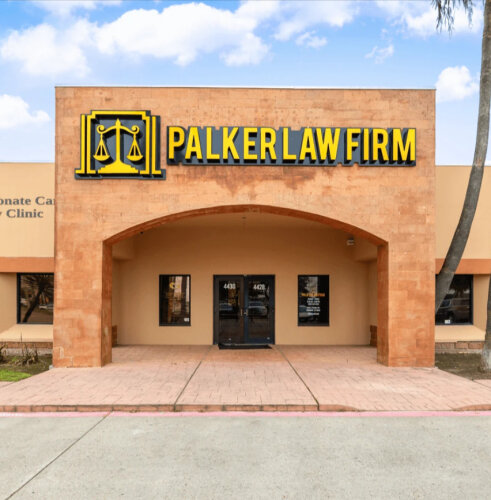Best Reinsurance Lawyers in Edinburg
Share your needs with us, get contacted by law firms.
Free. Takes 2 min.
List of the best lawyers in Edinburg, United States
About Reinsurance Law in Edinburg, United States
Reinsurance is the insurance that insurance companies buy to protect themselves from large losses. In practice a primary insurer cedes some of its risk to a reinsurer under a reinsurance contract. The law that governs reinsurance blends contract law with insurance regulation. In Edinburg - a city in Hidalgo County in the state of Texas - reinsurance arrangements with local ceding insurers are subject to Texas insurance law, federal procedural rules when disputes go to federal court, and widely accepted industry standards such as NAIC model rules and common market practices. Many reinsurance disputes are resolved by negotiation or arbitration rather than litigation, but state regulatory oversight and insolvency rules can become important when an insurer or reinsurer becomes financially troubled.
This guide provides a practical introduction to the legal landscape for reinsurance-related matters affecting parties located in or dealing with entities in Edinburg, Texas. If you are dealing with a different Edinburg in the United States please identify your state so you can get targeted legal advice.
Why You May Need a Lawyer
Reinsurance transactions and disputes often involve technical contract language, complex coverage analyses, regulatory compliance questions, and cross-border issues. You may need a lawyer if you are facing any of the following situations:
- Negotiating or drafting reinsurance treaties or facultative placements where precise wording determines coverage and payment obligations.
- A reinsurer denies or limits recovery on a reinsurance claim and you need help interpreting contract terms, presenting proofs of loss, or pursuing recovery.
- A counterparty is insolvent or is the subject of a receivership and you need to understand your status as a creditor, secure collateral, or file claims in the insolvency process.
- A dispute is subject to arbitration or litigation and you need counsel experienced with reinsurance arbitration rules, confirmation or vacatur of awards, and enforcement across jurisdictions.
- Regulatory or compliance questions arise - for example collateral requirements for non-U.S. reinsurers, filings with the state regulator, or questions about ceding commissions and accounting treatment.
- You need to enforce or resist an assignment or protect sensitive client or policyholder data during a claim dispute.
- You are evaluating the purchase, sale, or restructuring of an insurance or reinsurance portfolio and need legal due diligence.
Local Laws Overview
Key legal and regulatory features relevant to reinsurance in Edinburg include the following:
- State regulation - Insurance activities in Edinburg are overseen primarily by the Texas Department of Insurance. Texas statutes and administrative rules govern insurer licensing, market conduct, collateral for reinsurance, and insolvency procedures.
- Credit for reinsurance - States including Texas generally follow NAIC model approaches for determining when ceding insurers may take credit for reinsurance. These rules address when a reinsurer s assets are available to the ceding insurer and often require collateral - such as trust accounts or letters of credit - when the reinsurer is not authorized in the ceding state.
- Contract and choice-of-law - Reinsurance contracts are private agreements and will often include choice-of-law and dispute-resolution clauses. Courts generally enforce reasonable choice-of-law clauses, but state public-policy provisions and mandatory regulatory requirements can limit full freedom of contract.
- Arbitration and enforcement - Arbitration clauses are common. The Federal Arbitration Act generally supports enforceability of arbitration agreements that involve interstate commerce. Courts in Texas will confirm or vacate arbitration awards under the applicable federal and state standards.
- Insolvency and receivership - If an insurer or reinsurer becomes insolvent the state insurance commissioner may place it into receivership or liquidation under state insolvency laws. The receivership process affects priority of claims, treatment of reinsurance recoverables, and potential setoff rights. Prompt notice to the receiver and assertion of claims is essential.
- Statutes of limitation and contractual notice provisions - Time limits for bringing claims against a reinsurer are governed by both contract terms and state statutes of limitation. These can vary by cause of action and by state, so follow contract notice requirements carefully and seek counsel early if you believe a claim may expire.
- Local litigation venues - For disputes that go to court, state trial courts in Hidalgo County and federal courts in the region - including the Southern District of Texas - are the usual forums. Choice of forum clauses in contracts will be important but not always dispositive.
Frequently Asked Questions
What is the difference between treaty reinsurance and facultative reinsurance?
Treaty reinsurance covers a block of business under an ongoing agreement between the ceding insurer and reinsurer. Facultative reinsurance is negotiated on a risk-by-risk basis for individual policies. Treaty arrangements are generally broader and more automatic; facultative placements are used for large or unusual risks that fall outside a treaty.
Does Texas law require collateral from non-U.S. reinsurers?
Many states, including Texas, use NAIC-motivated rules to determine whether a ceding insurer can take credit for reinsurance. When a reinsurer is not authorized in the ceding state the regulator will often require security such as trust funds, letters of credit, or escrow to protect ceding insurers and policyholders. The precise requirements depend on the reinsurer s licensing status and the applicable statute or rule.
How should I respond if a reinsurer denies a claim?
Review the reinsurance contract carefully for coverage terms, conditions, notice and proof-of-loss requirements, and dispute-resolution procedures. Preserve all communications and documentation supporting the claim. Consult counsel promptly to determine whether a coverage denial is justified, to prepare a response, and to evaluate arbitration or litigation options if necessary.
What happens to reinsurance recoverables if the reinsurer becomes insolvent?
If a reinsurer is insolvent the state insurance commissioner may appoint a receiver. Reinsurance recoverables typically become claims in the insolvency estate. Your rights will depend on whether the ceding insurer obtained collateral, whether setoff rights exist, and on the priorities established by state insolvency law. Timely filing of proofs of claim and coordination with the receiver are critical.
Are arbitration clauses in reinsurance contracts enforceable in Texas?
Yes. Arbitration clauses are commonly enforced. The Federal Arbitration Act and Texas law generally support enforcement of arbitration agreements that involve interstate commerce. Courts will enforce arbitration clauses unless there are grounds such as fraud, unconscionability, or lack of capacity to contract.
How long do I have to bring a reinsurance claim?
Time limits are governed by contract provisions and state statutes of limitation. Many reinsurance contracts include specific notice and limitation clauses. Statutory limitation periods can vary depending on the cause of action. Because deadlines can be short and fact-dependent you should check the contract and consult counsel promptly to avoid waiver or forfeiture.
Do I need a local Edinburg or Hidalgo County lawyer for a reinsurance dispute?
If a dispute centers on local procedural requirements, venue, or engagement with local state regulators, local counsel experienced in insurance and reinsurance law can be very helpful. For arbitration or complex multi-jurisdictional disputes you may need counsel with reinsurance and arbitration experience plus local co-counsel for state-specific issues.
What documents should I bring when consulting a lawyer about reinsurance?
Bring the reinsurance agreement(s), any related facultative slips or treaty documents, correspondence with the reinsurer, claim submissions and denials, proof-of-loss materials, financial statements if relevant, notices from regulators or receivers, and any arbitration or litigation filings. A clear chronology of events is also very useful.
Can I recover attorneys fees and costs in a reinsurance dispute?
Recovery of attorneys fees depends on the contract language and applicable law. Some contracts include fee-shifting provisions. Texas and federal courts allow fee recovery where a contract or statute expressly provides for it. Absent a contractual or statutory basis parties typically bear their own fees.
Where do I file a complaint about unfair reinsurance practices?
Complaints about market conduct or unfair practices by an insurer or reinsurer doing business in Texas can be filed with the Texas Department of Insurance. The state regulator has authority to investigate market conduct issues, licensing problems, and consumer complaints involving insurers. For complex commercial disputes you may also pursue private remedies through arbitration or litigation.
Additional Resources
When you need more information or official assistance consider these resources and organizations:
- Texas Department of Insurance - state regulator that oversees insurer and reinsurance practices and handles consumer and market conduct issues.
- National Association of Insurance Commissioners - develops model laws and guidance widely used by state regulators on topics such as credit for reinsurance and insolvency handling.
- State Bar of Texas - provides directories and referral services and has sections focused on insurance law and litigation that can help find experienced counsel.
- Hidalgo County District Clerk and local court administration - for filing requirements and local procedural rules in Edinburg-area courts.
- Federal court resources - in the region the Southern District of Texas handles federal insurance and commercial cases that involve federal jurisdictional elements.
- Reinsurance industry associations - trade organizations and professional bodies provide industry guidance, standard forms, and best practices for reinsurance contracting and dispute resolution.
Next Steps
If you need legal assistance with a reinsurance matter in Edinburg follow these practical steps:
- Assemble your file - collect contracts, correspondence, claim documentation, financial information, and a clear timeline of events.
- Preserve evidence - keep original documents and preserve electronic communications and metadata. Follow any contractual notice or proof-of-loss requirements immediately.
- Contact counsel with reinsurance experience - look for lawyers or firms that handle insurance and reinsurance disputes, arbitration, insolvency matters, and regulatory work. Ask about their experience with Texas law and with issues similar to yours.
- Consider early dispute resolution - many reinsurance disputes are resolved through negotiation or arbitration. Discuss with counsel whether a demand letter, mediation, or early neutral evaluation could resolve the matter faster and with lower cost.
- Notify regulators if appropriate - if you suspect regulatory violations, insolvency risk, or market-conduct issues notify the Texas Department of Insurance and coordinate reporting with your counsel.
- Keep deadlines in mind - statutory and contractual deadlines can be fatal to claims. Do not delay in seeking legal advice if you believe you have a recoverable reinsurance claim.
This guide is for general informational purposes and does not create an attorney-client relationship. For tailored advice about your specific situation consult a qualified attorney experienced in reinsurance and insurance regulation in the state where your matter arises.
Lawzana helps you find the best lawyers and law firms in Edinburg through a curated and pre-screened list of qualified legal professionals. Our platform offers rankings and detailed profiles of attorneys and law firms, allowing you to compare based on practice areas, including Reinsurance, experience, and client feedback.
Each profile includes a description of the firm's areas of practice, client reviews, team members and partners, year of establishment, spoken languages, office locations, contact information, social media presence, and any published articles or resources. Most firms on our platform speak English and are experienced in both local and international legal matters.
Get a quote from top-rated law firms in Edinburg, United States — quickly, securely, and without unnecessary hassle.
Disclaimer:
The information provided on this page is for general informational purposes only and does not constitute legal advice. While we strive to ensure the accuracy and relevance of the content, legal information may change over time, and interpretations of the law can vary. You should always consult with a qualified legal professional for advice specific to your situation.
We disclaim all liability for actions taken or not taken based on the content of this page. If you believe any information is incorrect or outdated, please contact us, and we will review and update it where appropriate.









